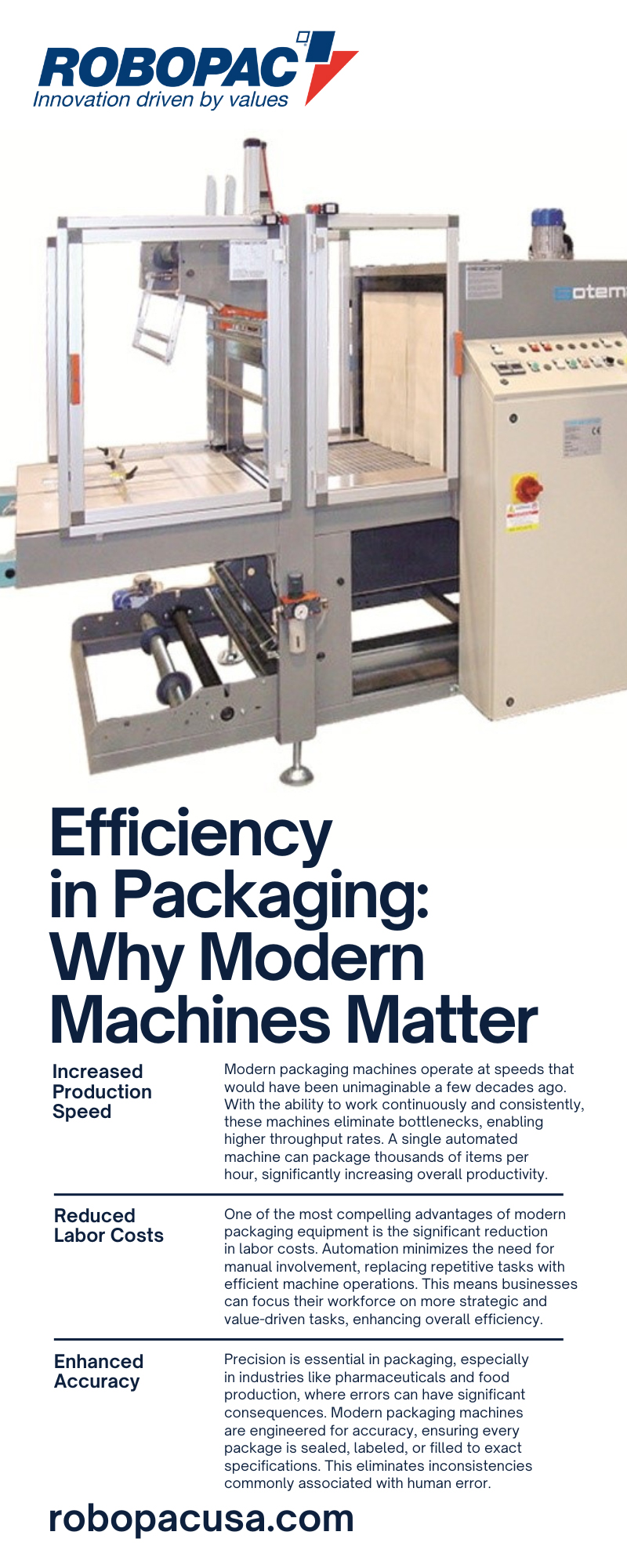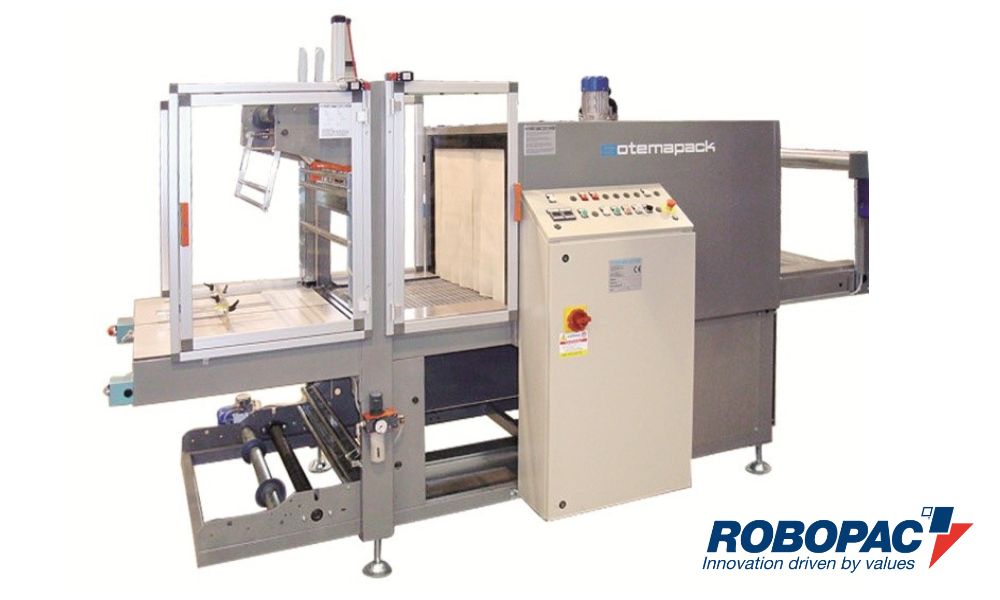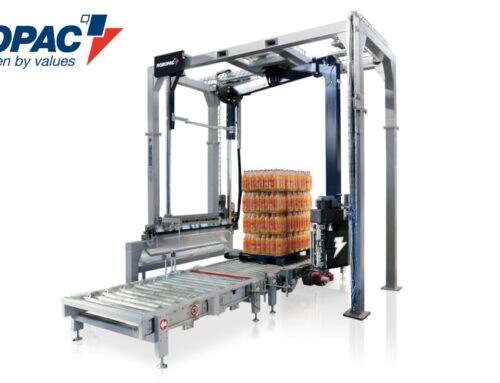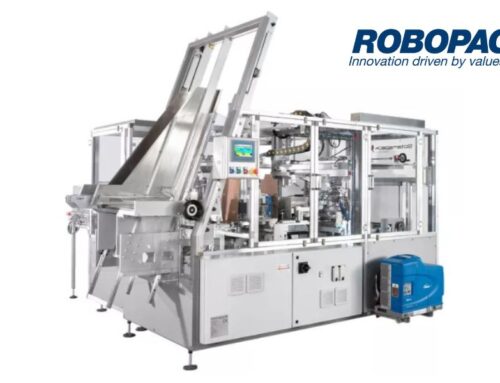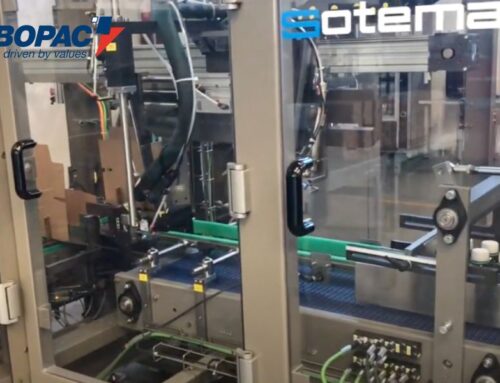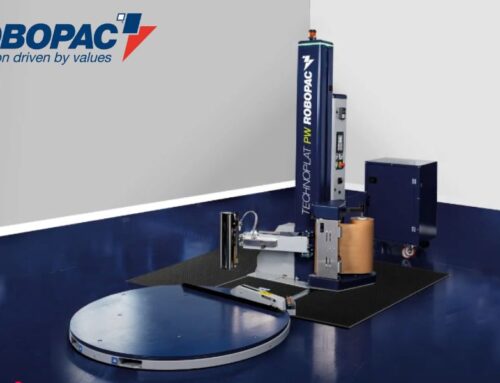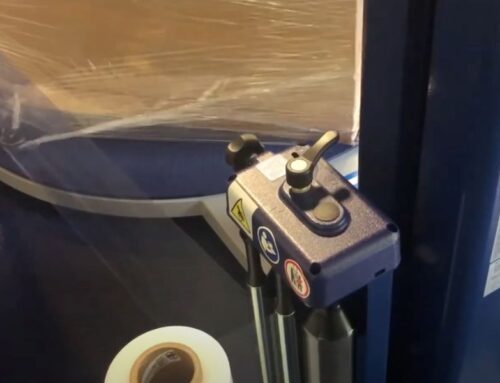Efficient packaging processes reduce costs, maximize productivity, and help businesses meet consumer demands. Modern packaging machines deliver speed, consistency, and precision that manual methods can’t match. Whether you’re packaging products for food, electronics, or retail goods, implementing these machines can transform your operations in significant ways.
Technological and mechanical advancements are not just optional upgrades but essential tools for staying competitive in the industry. From increasing production speed to offering real-time monitoring and reducing waste, see why modern machines matter when improving packaging efficiency.
Increased Production Speed
Modern packaging machines operate at speeds that would have been unimaginable a few decades ago. With the ability to work continuously and consistently, these machines eliminate bottlenecks, enabling higher throughput rates. A single automated machine can package thousands of items per hour, significantly increasing overall productivity.
This increased speed offers additional benefits by allowing businesses to meet tight deadlines without sacrificing quality. Seasonal spikes or unexpected surges in demand, which could overwhelm traditional methods, are no longer an issue. Businesses can confidently deliver on time while maintaining cost-effective operations.
Reduced Labor Costs
One of the most compelling advantages of modern packaging equipment is the significant reduction in labor costs. Automation minimizes the need for manual involvement, replacing repetitive tasks with efficient machine operations. This means businesses can focus their workforce on more strategic and value-driven tasks, enhancing overall efficiency.
Furthermore, reduced dependence on manual labor also addresses labor shortages, which is a common challenge in many industries. Machines can operate reliably with minimal interruptions. This not only ensures smoother operations but also translates into substantial savings that can be reinvested into other areas of growth.
Enhanced Accuracy
Precision is essential in packaging, especially in industries like pharmaceuticals and food production, where errors can have significant consequences. Modern packaging machines are engineered for accuracy, ensuring every package is sealed, labeled, or filled to exact specifications. This eliminates inconsistencies commonly associated with human error.
Accurate packaging also prevents costly recalls and enhances customer satisfaction. When every product looks and performs as expected, businesses build trust and loyalty with their customers. For companies looking to scale or enter global markets, consistency in packaging quality becomes a key competitive advantage.
Waste Reduction
Material waste has long been a challenge in packaging, both from an environmental and financial perspective. Modern machines use advanced material-handling techniques to make sure precise amounts of materials, such as film or cardboard, are used for each package. Lower waste levels not only reduce operational costs but also support sustainability goals—a growing priority for many businesses.
Various packaging machines reduce material waste in the following ways:
- Precision cutting tools ensure materials like film, cardboard, and tape are cut to the exact required dimensions, avoiding excessive use.
- Automated material adjustments optimize the amount of material used for different package sizes and shapes.
- Tightly controlled sealing mechanisms reduce excess material in seals and folds.
- Integrated sensors and monitoring systems detect misalignments or material waste during production, enabling quick corrections to prevent further loss.
- Lightweight material technology compatibility enables the use of thinner, eco-friendly materials without compromising on durability.
- Advanced software features calculate and fine-tune material requirements to ensure packaging operations stay as resource-efficient as possible.
- Continuous feeding systems prevent material losses caused by misfeeds or interruptions during production cycles.
- Lower material overstocking through real-time usage tracking helps avoid unnecessary procurement and waste.
Enhanced Safety Features
Modern equipment is designed with advanced safety features to protect both operators and the production environment. These machines often include automated shutdown mechanisms to prevent accidents in cases of malfunction. Additionally, integrated sensors and warning systems actively monitor operations, identifying potential hazards before they escalate into critical issues.
Another key enhancement is the implementation of ergonomic designs that prioritize operator comfort and reduce workplace injuries. Safety interlocks and protective barriers restrict access to moving or hazardous components during operation. Modern machines also comply with the latest industry safety standards, ensuring a secure and reliable manufacturing process.
Improved Scalability
Flexibility is one of the greatest strengths of modern packaging equipment. Whether it’s adjusting to different product lines or scaling production up during high-demand seasons, these machines can handle it all. Multiple-format case packers from Robopac USA, for instance, adapt to various packaging formats and sizes, making them highly versatile for different production needs. This flexibility allows businesses to efficiently handle diverse product lines without the need for constant equipment changes, saving time and boosting productivity.
Scalability also allows businesses to seize new opportunities quickly. Whether it’s launching a new product or entering a new market, having machines that can adapt accordingly guarantees smooth transitions and sustained efficiency.
Real-Time Monitoring and Analytics
One of the biggest ways that modern packaging machines boost efficiency is by offering real-time performance data. Integrated digital tools in advanced equipment monitor metrics such as production speed, error rates, and material usage, giving businesses a clear picture of operational efficiency.
Here are some key advantages of using real-time data in packaging operations:
- Enhanced efficiency through timely identification and resolution of production issues.
- Reduced downtime by proactively addressing potential problems before they disrupt workflows.
- Improved decision-making with accurate, actionable insights into performance metrics.
- Streamlined operations by eliminating bottlenecks and optimizing resource utilization.
- Greater scalability to adapt quickly to changing market demands or production needs.
- Stronger sustainability efforts by minimizing waste and improving resource management.
Seamless System Integration
Integrating new technology with existing systems often poses challenges, but modern packaging machines are designed to fit into a variety of production environments. They can seamlessly align with upstream and downstream equipment, ensuring a cohesive workflow. This compatibility not only reduces implementation downtime but also minimizes errors that can arise from mismatched systems. Businesses can maintain uninterrupted operations while enjoying the many benefits these advanced machines offer.
To integrate new equipment into existing lines, businesses must make sure the equipment meets the required specifications for size, performance, and connectivity. If necessary, they can collaborate with manufacturers and technicians to customize their setups to achieve seamless integration.
Modern packaging machines combine speed and precision to handle demanding production needs with ease. Their ability to minimize material waste, ensure operational safety, and provide real-time performance monitoring enables businesses to optimize their workflows and cut expenses. Additionally, scalability and seamless integration capabilities make these machines versatile tools for adapting to diverse product lines or market shifts. By adopting this advanced equipment, businesses gain a competitive edge that allows them to deliver quality products.
